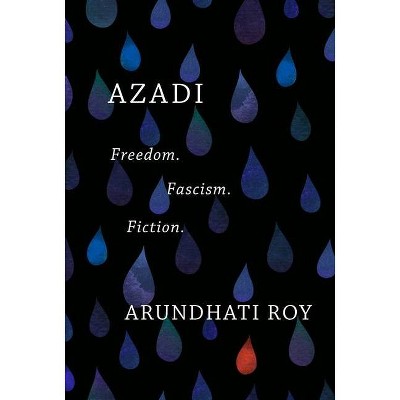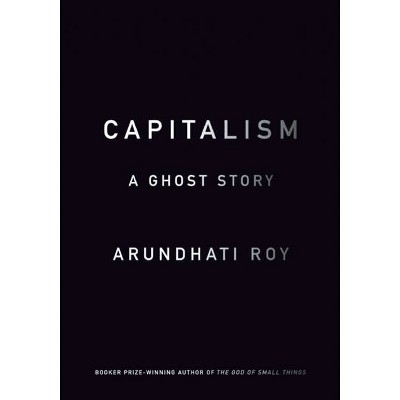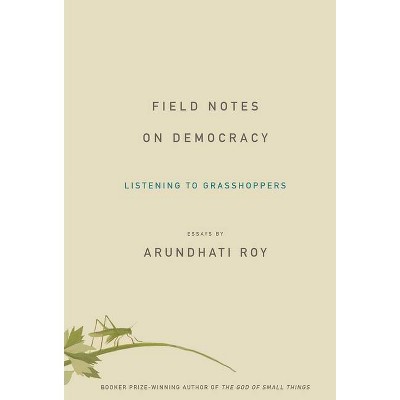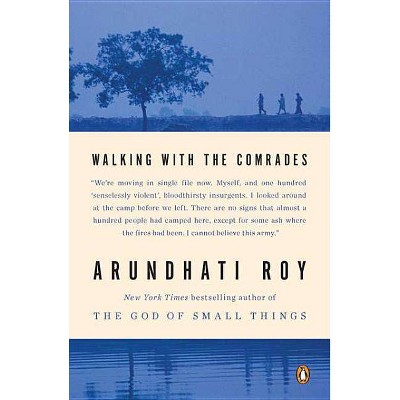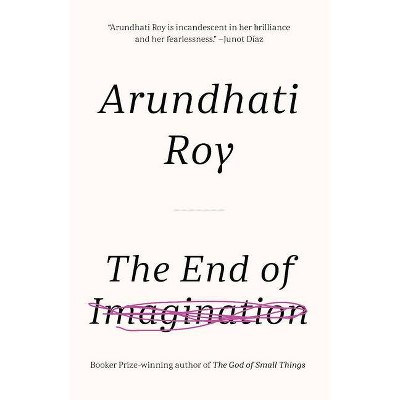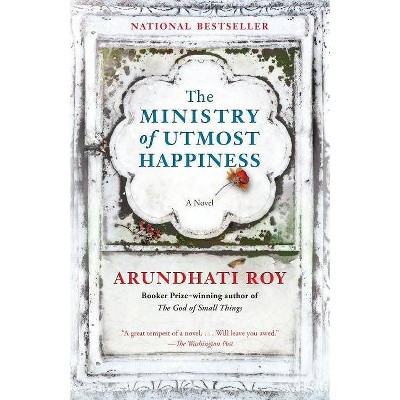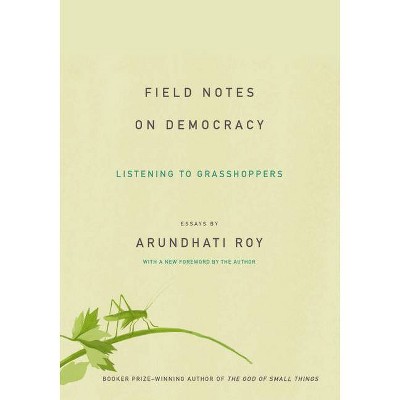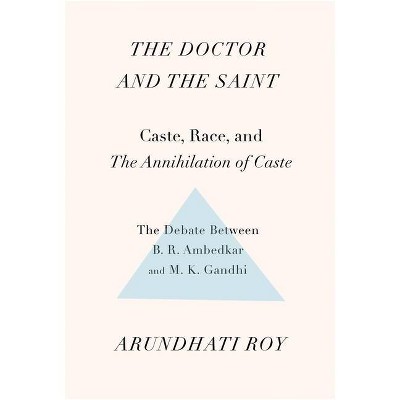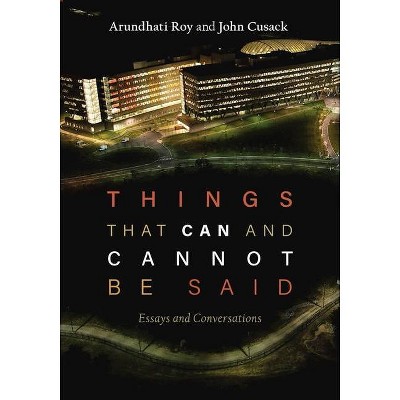My Seditious Heart - by Arundhati Roy (Hardcover)
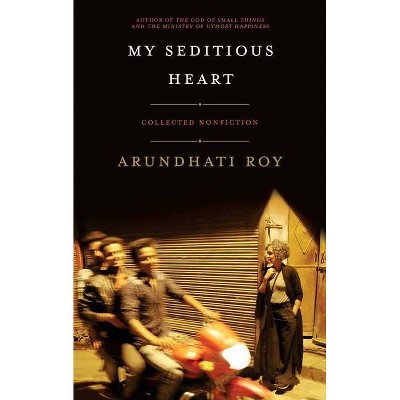
Similar Products
Products of same category from the store
AllProduct info
<p/><br></br><p><b> About the Book </b></p></br></br><p>In constant conversation with the themes and settings of her novels, the essays form a near-unbroken memoir of Arundhati Roy's journey as both a writer and a citizen, of both India and the world, from The End of Imagination, which begins this book, to 'Azadi', with which it ends.</p><p/><br></br><p><b> Book Synopsis </b></p></br></br><p>Praise for Arundhati Roy: </p><p>"Arundhati Roy combines her brilliant style as a novelist with her powerful commitment to social justice in producing these eloquent, penetrating essays." --Howard Zinn</p><p>"Arundhati Roy is one of the most confident and original thinkers of our time." --Naomi Klein</p><p>"The scale of what Roy surveys is staggering. Her pointed indictment is devastating." --<em>The New York Times Book Review</em></p><p>Bookended by her two award-winning novels, <em>The God of Small Things </em>(1997) and <em>The Ministry of Utmost Happiness </em>(2017), <em>My Seditious Heart </em>collects the work of a two-decade period when Arundhati Roy devoted herself to the political essay as a way of opening up space for justice, rights, and freedoms in an increasingly hostile world. Taken together, the essays speak in a voice of unique spirit, marked by compassion, clarity, and courage. Radical and superbly readable, they speak always in defense of the collective, of the individual and of the land, in the face of the destructive logic of financial, social, religious, military, and governmental elites.</p><p><strong>Arundhati Roy </strong>studied architecture in New Delhi where she now lives. She is the author of the novels <em>The God of Small Things</em>, for which she received the 1997 Booker Prize, and <em>The Ministry of Utmost Happiness</em>. She has written several nonfiction books, including <em>Field Notes on Democracy: Listening to Grasshoppers, Capitalism: A Ghost Story, Walking with the Comrades, Things That Can and Cannot Be Said</em> (with John Cusack), and <em>The End of Imagination</em>. She is the recipient of the 2002 Lannan Cultural Freedom Prize.</p><p/><br></br><p><b> Review Quotes </b></p></br></br><br><p>These studies are trenchant, still relevant and frequently alarming....Roy's done the research, and she has all the receipts....Roy writes in her foreword that "Not one iota of my anger has diminished" since the time of writing these essays. Yet they do not come across as angry. Instead, their impact comes from their precision, research and damningly clear reportage.<strong><em>--The Guardian<br /><br /></em></strong>"Roy's fury is suited to these horrible and therefore simpler times; it's more tuned to the reality on the ground than restraint and statistics. Roy started writing nonfiction when the world felt better. <em>My Seditious Heart</em> arrives to tell us not that the world has deteriorated but that it was never as fine as we once believed." <strong><em>--New Yorker<br /><br /></em></strong>Arundhati Roy's new essay collection, My Seditious Heart, every page of which gifts you her far seeing, her calm and intelligent urgency, the wisdom and relief of her articulacy, her courage."<strong><em> --Ali Smith, The Guardian<br /><br /></em></strong>Roy's ... nonfictional engagement with the conflicts and traumas of a heedlessly globalized world has manifested the virtues of an unflinching emotional as well as political intelligence. Her lucid and probing essays offer sharp insights on a range of matters, from crony capitalism and environmental depredation to the perils of nationalism and, in her most recent work, the insidiousness of the Hindu caste system. In an age of intellectual logrolling and mass-manufactured infotainment, she continues to offer bracing ways of seeing, thinking and feeling."<br /><strong>--Pankaj Mishra, <em>Time magazine<br /><br /></em></strong>The writing is passionate, seething with anger; it clearly takes sides, and cannot be accused of ideological ambiguity. <strong><em>--Independent<br /><br /></em></strong>"[T]here is an intellectual historian in Roy, always contextualizing and looking at the broader picture....Few people write as Roy does, in a soft lilting voice that persuades us to walk with her, and to plot our approaches together." <strong>--<em>Full Stop</em></strong> <br /><br /></p> <p><strong>Praise for Arundhati Roy: </strong></p> <p>Arundhati Roy combines her brilliant style as a novelist with her powerful commitment to social justice in producing these eloquent, penetrating essays.--<strong>Howard Zinn</strong><strong><br /></strong><br />"Arundhati Roy is one of the most confident and original thinkers of our time." --<strong>Naomi Klein</strong><strong><br /></strong><br />The fierceness with which Arundhati Roy loves humanity moves my heart. --<strong>Alice Walker</strong><strong><br /></strong><br />Arundhati Roy calls for 'factual precision' alongside of the 'real precision of poetry.' Remarkably, she combines those achievements to a degree that few can hope to approach. --<strong>Noam Chomsky</strong><strong><br /></strong><br />The notion of Democracy and the pleading for human compassion first came together in Sophocles and the Greek tragedies. More than two thousand years later we live under an economic world tyranny of unprecedented brutality, which depends upon the systematic abuse of words like Democracy or Progress. Arundhati Roy, the direct descendant of Antigone, resists and denounces all tyrannies, pleads for their victims, and unflinchingly questions the tragic. Reflect with her on the answers she receives from the political world today. --<strong>John Berger</strong><strong><br /></strong><br />"[Roy is] an electrifying political essayist... So fluent is her prose, so keen her understanding of global politics, and so resonant her objections to nuclear weapons, assaults against the environment, and the endless suffering of the poor that her essays are as uplifting as they are galvanizing." --<em><strong>Booklist</strong></em><strong><br /></strong><br />"[Arundhati Roy is] India's most impassioned critic of globalization and American influence." --<em><strong>The New York Times</strong></em><strong><br /></strong><br />The scale of what Roy surveys is staggering. Her pointed indictment is devastating. --<em><strong>The New York Times Book Review<br /><br /></strong></em>Her incomparable divining rod picks up the cries of the despised and the oppressed in the most remote corners of the globe; it even picks up the cries of rivers and fish. With an unfailing charm and wit that makes her writing constantly enlivening to read, her analysis of our grotesque world is savagely clear, and yet her anger never obscures her awareness that beauty, joy, and pleasure can potentially be part of the life of human beings. --<strong>Wallace Shawn</strong></p><br><p/><br></br><p><b> About the Author </b></p></br></br><p><strong>Arundhati Roy</strong> studied architecture in New Delhi, where she now lives. She is the author of the novels <em>The God of Small Things</em>, for which she received the 1997 Booker Prize, and <em>The Ministry of Utmost Happiness</em>. She has written several nonfiction books, including <em>Field Notes on Democracy: Listening to Grasshoppers</em>, <em>Capitalism: A Ghost Story, </em><em>Walking with the Comrades</em>, <em>Things That Can and Cannot Be Said </em>(with John Cusack), and <em>The End of Imagination</em><em>.</em> She is the recipient of the 2002 Lannan Cultural Freedom Prize.</p>
Price History
Cheapest price in the interval: 50 on October 27, 2021
Most expensive price in the interval: 50 on December 20, 2021
Price Archive shows prices from various stores, lets you see history and find the cheapest. There is no actual sale on the website. For all support, inquiry and suggestion messagescommunication@pricearchive.us
